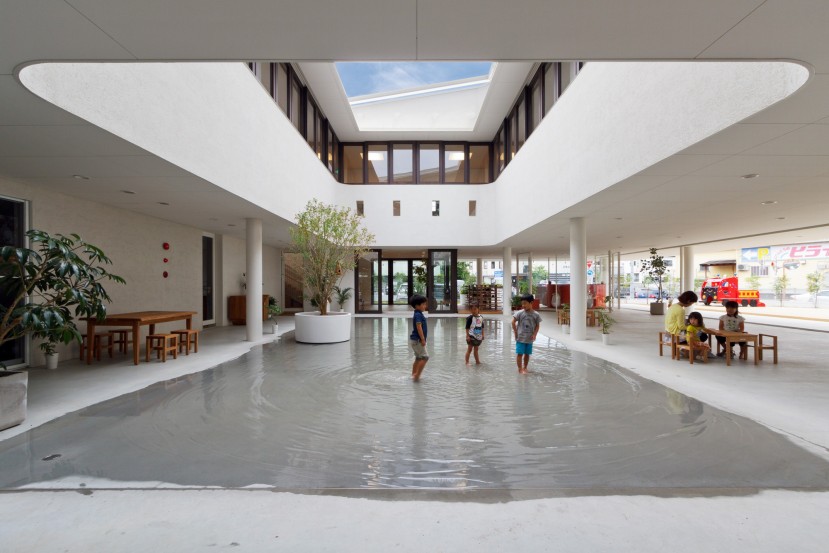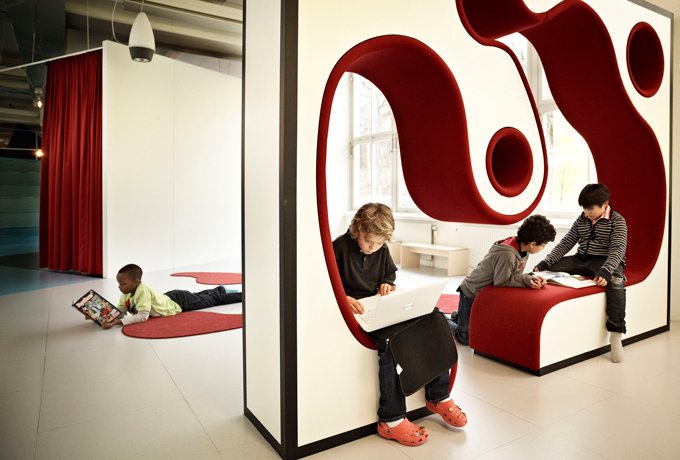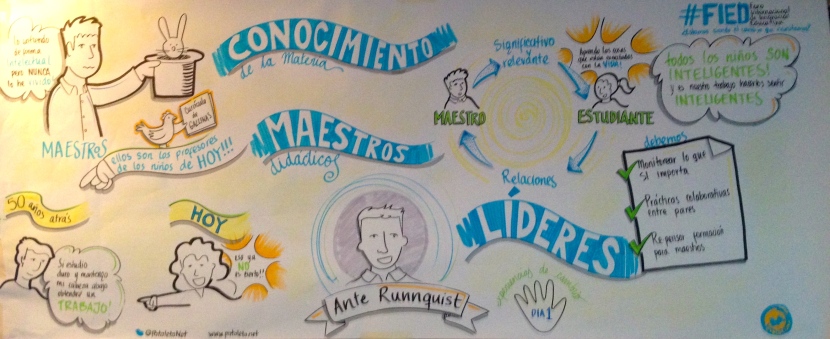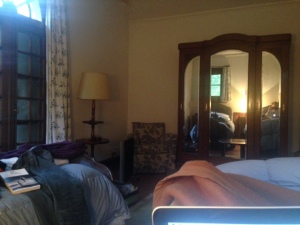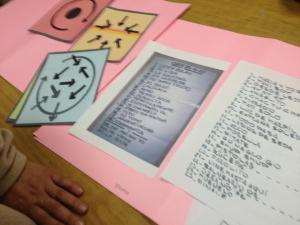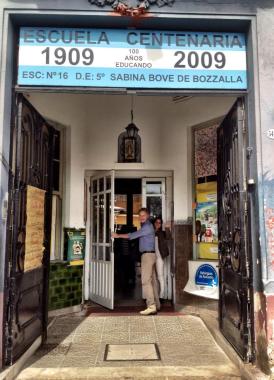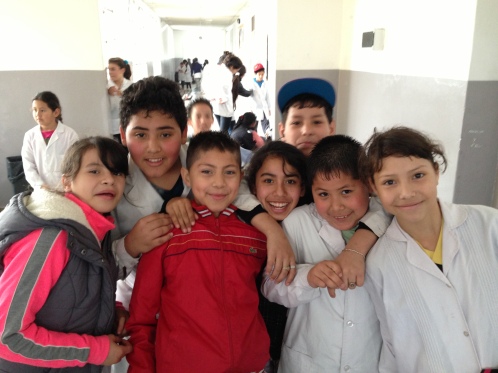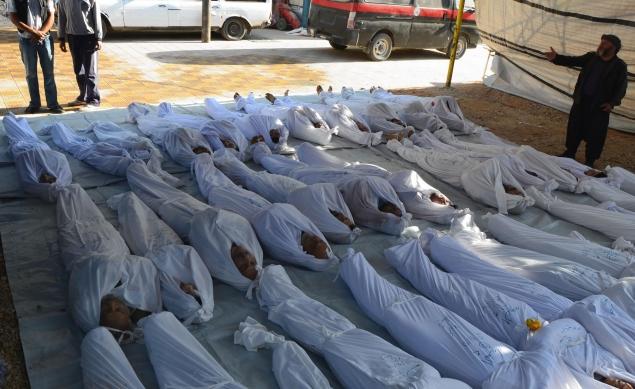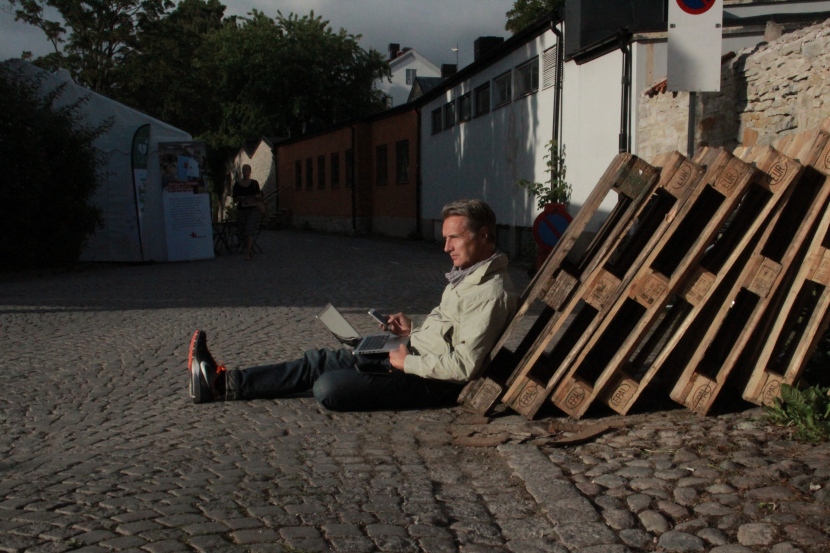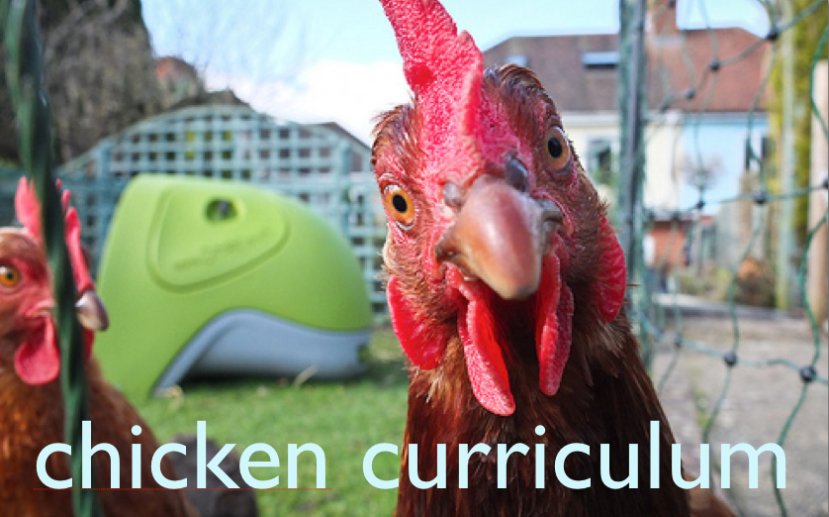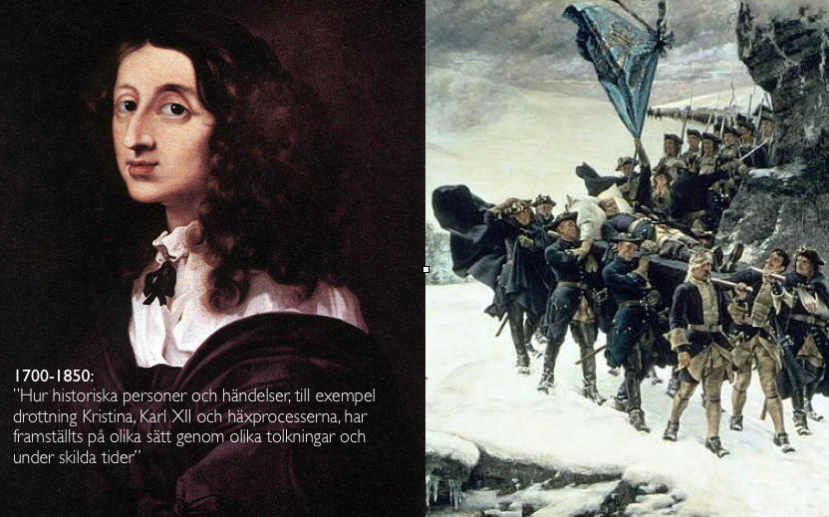Category: English
Education without poetry is no education at all
Aww God it’s even got a puddle! A colleague gasped as she saw some images from Youji no Shiro‘s kindergarten and nursery in Kumamoto in Japan, much like we do when we open that present we always wished for but never thought we would get. And yes, it has got a a puddle and to me it tells something of what is missing in the public debate on education in general and in buildings we call schools in particular: Poetry and a higher cause.
What does it take to design a courtyard with a concave floor so when it rains, it turns into a pool to splash your feet in? First: just imagine all the argument against the idea… Then: imagine the message this puddle sends to the kids in this kindergarten. It reminds me of the fist day in a school where we had designed a pretty extravagant piece of furniture, kind of wall that you could sit in/on. A girl aged seven or eight looked at the thing and then at me: “Why on earth have you done this one?!”I wasn’t prepared for that one so just responded “Because we that that you would like it…”. Her response, together with the biggest smile “Well done you! GOOOOOD thinking!” and then she disappeared.So, making “unnecessary” and beautiful environments tells a story: this place is so important (and in fact, you are) that we did something we dreamt having ourselves, hoping you would love it too… That is paying respect both for the child and to the institution as such. But why are so many environments ugly, and void of wonder and poetry? -For a million of reasons of course but I think that one decisive factor is that education has been reduced to a commodity much like any other and the places where it’s “produced”, as a result of this, have been stripped of everything “unnecessary” to the production of the desired output. That’s a huge mistake. Education mustn’t be and can’t a commodity in that sense. Just look at the practice of any brilliant teacher, anywhere in the world: it’s the promise of something higher and wonderful that makes learning tick.
A puddle for toddlers tells a story and use it as a metaphor when you visit a school next time: Where are the puddles in this place?
Over and out
/Ante
The Dream & The Machine
Is the political agenda for education incompatible with the requirements for learning? Is it a bit like Descartes’ Ghost & Machine, but with the roles reversed? -The Dream of Learning is controlled by The Machine of Education instead of the other way around.
Great artwork performed by pataleta.net was created during each session, lovely!This post was initially intended as a serious reflection on an fantastic week in Buenos Aires and #FIED -Forum International de Innovación Educativa but things happened (i fell asleep at the plane forgot about this post and then life took over). But, perhaps better late than never?!
The machine
Ever so present at #FIED, never presented as a Keynote but blamed under any of these names: The System, The Paradigm, The Administration, The Factory, Them, The Traditionalist, The Resisters, The Old School, The Bureaucracy, The Others… The Machine
If you listened to any speaker at #FIED (including myself) there was this agreement: WE know something, WE speak the same lingo BUT it’s The Machine that make progress so hard, education outdated and learning boring and misdirected. The irony is that most of us are very much part of the system, you might even say that we are well above average in terms of possibilities to influence The Machine but we still need it, for some reason.
The Dream
#FIED was sprinkled with brilliant people and examples of how you can make education relevant, engaging and functional in our era. The Dream we all seem to share is to get back to nature in the sense that learning should be in tune with our human nature, our desires and our biology. The dream seductive, we all thrive on the stories of learning environments where children and educators thrive, explore, acquire knowledge and never stop learning. The dream we share seems to be that zone where we, body and soul commit ourselves to learning in endeavors that expand us as individuals and collectively. There is only one problem: most of these examples come from contexts outside of The Machine, they seem to be exceptions or free havens. Are we dealing with The Machine are we escaping from it?
God old René
We like to think that we control our lives, that our actions actually matters, that we’re not just being pushed by forces outside of us. As a human being I feel better when I assume that I have a free will (at least on a good day) and we should feel that as educators as well, but do we? Judging from how we talk about education in general, at at #FIED, I’m not so sure. It seems like we are in the balance, allt these good ideas and initiatives acting as scaffolding for a crumbling machine but but I wonder we are dealing with the machine itself. Are we just standing on the scaffolding, cleaning the windows of The Machine, offering better views and perspectives but not really affecting the machinery?
When René Descartes coined the idea of ”The Ghost and The Machine” never quite explained how the two connected. His dilemma was to explain how something immaterial (the ghost in us, our souls) could touch and ultimately control the physical world (our bodies and the rest…). His solution was that it all mysteriously happened in the pineal gland and I can’t help thinking: Are we in the same predicament? -We sometimes seem completely incapable of explaining how our political systems should “touch” and promote the best ideas about learning and education. It’s as if The Machine has its own logic governed på hierarchies, political buzz words and measurability whereas education and learning are governed by the principles of The Ghost: meaning, motivation, context, purpose, engagement, fun, lifeworthiness, challenge, future, community, interaction, knowledge, mastery…
-I think we must do better! For one: we should implement systems that actually promote and support learning instead of only measuring output. René got one thing right: It is the Dream that should control The Machine, not the other way around. -More on this in a coming post on a SmartIndex!
Over and out
/Ante
Proof…
In hindsight, I’m an idiot
It’s the end of an intense week in Buenos Aires a week has passed since me an my colleague Frida Gustafsson Wennö arrived and as I sit on my bed and reflecting on the events I realize I’ve been an idiot. There hasn’t been much room for reflection, we’ve been in do-do-do-mode. I learnt a new expression from an Argentinean friend last last night, he said: -Ahh, you work like me! They accuse us of not having a strategy’s but that’s not true, we are on the “No plan-plan”! Anyway…
We have been running a pedagogical leadership program for teachers and managers in and around a school in Buenos Aires, “La Banderita”, School N° 16 de 5 and this our third trip here. The impact of our efforts has been hard to assess tu us, in my own opinion it’s been marvelous and frustrating at the same time: The sessions in BA have been honest, packed with great people and experiences, we always leave this city on a high note. The frustration sets in when you return and realise how many obstacles our Argentinean friends have to overcome and how sluggish transformation in education really is.
The aim for this week was to introduce a “Toolbox for development”, a set of theories and methods that we have chosen in collaboration with de Ministry of education with the idea that teaches and leaders should adapt and use these strategies in their own context. The motto of the week became “This program isn’t about you getting a ready made cake, it’s a professional exchange where you learn how to use some new ingredients and where we discuss the recipe in order to make a new cake with BA flavor”
Yesterday we had a session with all the teachers at the school and that was when I realized that have been a complete idiot thinking that progress has been slow slow and erratic. What happened was that the teachers “suddenly” took our tools and models and made them their own, something that hadn’t happened before. They tweeked them, added, removed, made some kind of mash-up and surprise (not) -It worked!
Why I’m an idiot? I’m the one who have been preaching for years that relationships are the heart of learning, that change requires trust “If you ask me to take the risk of something new, you better be a person I can rely on”. So, is progress sluggish? -No, it’s human. It took us three trips to BA to get to know each other, to be friends. Maybe it’s only then we can really transform education. My mistake, it won’t happen again!
Thanks for the learning BA, Love you!
Over and out
/Ante
I’m The King of Comebacks
 I just finished reading Malcolm Gladwell’s “David & Goliath” and I can’t stop thinking of one of the basic ideas in the book, the fact that we often think that we succeed in spite of adversities or hardships when it often is thanks to them that we develop skills and attitudes that make us prevail and, eventually, succeed. -Dyslexia is a tough handicap at the same time as it seems to be a hallmark of many successful entrepreneurs. A child who is brought up deprived of love and trustworthy relationships might, thanks to this, develop dispositions and attitudes that will be regarded as god given talent later in life. The idea isn’t to romanticize hardship but to point to the fact that setbacks and disasters can create dispositions that under other circumstances develop into virtual super powers. -It is more than “what doesn’t kill you..” it’s in fact “what makes you weak some aspect might just make you über in another”.
I just finished reading Malcolm Gladwell’s “David & Goliath” and I can’t stop thinking of one of the basic ideas in the book, the fact that we often think that we succeed in spite of adversities or hardships when it often is thanks to them that we develop skills and attitudes that make us prevail and, eventually, succeed. -Dyslexia is a tough handicap at the same time as it seems to be a hallmark of many successful entrepreneurs. A child who is brought up deprived of love and trustworthy relationships might, thanks to this, develop dispositions and attitudes that will be regarded as god given talent later in life. The idea isn’t to romanticize hardship but to point to the fact that setbacks and disasters can create dispositions that under other circumstances develop into virtual super powers. -It is more than “what doesn’t kill you..” it’s in fact “what makes you weak some aspect might just make you über in another”.
This notion started a small obsession: Can it be that challenges in my own life have shaped some kind of super powers that stem from the fact that I have had to deal with shit that most people don’t? Finding the super power was tricky, finding the shit was easy: For as long as I can remember my lungs have been a complete disappointment. I have been told that the priest didn’t dare to hold me when I was baptized as he thought that i would choke. The shit in my case spells pneumonia due to dysfunctional cilia. For the lucky reader unfamiliar with pneumonia: it’s like being hit by a bus in your ribcage, adding fever on top of it. Enough of this.
A short summary of how things have gone down:
– 9 years old, fastest sprinter in school and time for championships -enter pneumonia
– 14 years old and time for first sleep over party -sick as hell with fever
– 19 years old in Africa and time for long awaited snorkeling trip -knocked out by “flu” and delirious
– 47 years on and heading for Future of Learning at Harvard Graduate School of Education, HGSE – No shit Sherlock, medication time
-Add countless variations on the theme…
The question now is not about pitty but super power. What might you have to learn if you need to deal with shit like this throughout you life? It was the last event on the list that gave the answer to my question. Instead of being flattened by disappointment from missing the chance to meet all the great people at HGSE I found myself feeling almost guilty for NOT missing it. -I felt great, told myself that it was great to be home, take it easy and simply enjoy life. -And it was true, I had amazing weeks fueled by the effect of antibiotics that made me feel like I was on EPO.
So, what is the super power?
I’m the King of comebacks. Like anyone, I can be knocked down but I’m superb at regrouping, accepting the situation and finding new angles. I don’t dwell over the the, I feel almost excited over the new possibilities. I hear people cutting teeth over “unfair” or unforeseen events that destroy their plans and dreams. Not me. I’m like a Russian doll, knock me down and I’ll be back in an instance ready to think of something else, almost oblivious to the loss, often excited by the challenge. I think i share this super power with anyone with a history similar to mine: If you have been forced to stand down, shut of, be excluded and deal with bitter disappointment you will develop strategies to counter exactly that. -And hey, it’s kind of useful!
I’ll end this post with a recommendation: read Gladwell’s book and look at your own setbacks with the understanding that they might be the dark side of a super power. I’m the King of Comebacks -Who are you?
Learning+Innovation+Passion = Buenos Aires
If you want to witness ambition and determination to shape an educational system into something worthy both of our kids and the future, you should seriously consider a trip to Buenos Aires. We went there and it was an overwhelming experience. There are many things to admire within the project Nueva Esculea Secundaria and PIS (Pedagogical Innovation Schools) and would like to mention 3 of them. -“We”, that’s me and my former Super colleague Frida Gustafsson Wennö, now CEO at Swedish firm “Tänk Om”. Here we go!
1. A burning platform. There is nothing lukewarm about the approach, there is a real sense of urgency. You only need a few minutes with Director general Mercedes Miguel to realize that this is a woman with a mission, ready to put her own comfort aside in order to give more children what they deserve: a great and relevant education. I think the current ranking of any educational system is less interesting than its potential for improvement and rate of change. -Sweden might score higher in the first category (at the moment) but Buenos Aires will certainly be up there among the best in the second. And being on top in the second is the only thing that can make you a contender for the top in the first category, in the long run.
2. The courage to innovate. There is something unusual about the approach chosen by the government in Buenos Aires. In our meetings with Mayor Mauricio Macri, Education Minister Esteban Bullrich and General director Mercedes Miguel , it is evident that they realize that the question of creating schools for ideas in a global perspective, in world where educational systems to often are considered as national monopolies the winners will be those who have wisdom enough to think global.
Part of the strategy is to give some schools more freedom and mission to become Lighthouses and centers of innovation and development. The government has invited several foreign schools as parters to these Lighthouses, that’s where we came into the equation. The school we are working with, Escuela No 16, is located in one of the more disadvantaged districts of Buenos Aires and we recognize the challenges found in similar communities in our own country, albeit on a different scale and under even tougher conditions. The challenge given to us as teachers and educators isn’t to copy something, it’s create something that is 100% suited for the context around this school. Innovation and success requires of us as professionals to share ideas and to create something new and I’m grateful that we were given this opportunity and deeply impressed by the ethics and skills shown by our colleagues at No.16. David Perkins once said that educators around the world are part of a camaraderie, a fellowship, and we certainly felt that during our stay i Argentina.
3. Putting the kids on the table. Real change is never uncontroversial. My impression is that education in Argentina is heavily politicized. Matters of learning and pedagogy quickly get entangled in a more complex political context. I’m not saying that learning and education should be value neutral but I do think that we at times need to rise above our personal convictions and needs and avoid making schools a ideological battlefield. -And that goes for my own country as well.
During a lunch break at Escuela No. 16 one of the teachers told a story that made everyone around the table cry: The week before we arrived one her students had been murdered. Murdered by someone who shot the nine year old boy in the head with a pistol. The teacher told us of her despair, how hard it was to getting back to school knowing it would be impossible to give enough room for grief and to comfort the rest of the kids, how she kept running from lesson trying to keep herself from breaking. The story tells me at least two things, a school can’t heal the wounds of a whole community but a great schools must be built from the child´s point of view. If we “put the kids on the table” when making decision about education we will make better decisions. Just a few examples:
- Kids want a safe and inspiring learning environment: Supported by science
- Kids want teachers who build healthy relationships: Supported by science
- Kids love teachers who can make them feel proud and make them excel: Supported by science
- Kids love challenges hate it when its boring. THAT should be in every curriculum because it is: Supported by science
– Give it a few moments more and you will come up with more. THAT should be the common ground for politics and policies but we tend to get lost in other issues. Agree?
What’s next? We have just finalized the first step in the project: one week of intense exchange and learning in Buenos Aires out of this will come a strategy for the coming years. -We will keep you posted!
I think we will see explosive school improvement in Buenos Aries in the coming years. In one week we met people with enough passion, ambition and professionalism to rock an entire nation and when that happens it will send a message to the rest of the world: Evolution and innovation depends on us working together, sharing our best ideas and putting them into practice in new versions suited for our kids in our communities. When I think of this, it makes me the happiest man alive!
AND to the true troopers, The Three Musketeers: Ana Laurua Barudi, Magda Cardoner and Pablo Princz…To quote to old song: Nothing compares to you!
Over and out
Ante
Reason can’t fix this
Sitting by the breakfast table reading the news my daughters started asking me questions about Syria.
– How come this is happening Dad? (I tried to answer using my understanding of conflicts and limited knowledge of Syria)
– Why isn’t someone stopping this? (Again, I tried to explain the complexity of international politics, the dilemma of sovereignty etc)
– Dad, all the dead in the pictures seem to be normal people and children, not soldiers, why are they killed? (I related to the sad fact that it’s normal in war, civilians and women and children in particular suffer even more and die in higher numbers than soldiers)
– Dad… they are using gas, isn’t that awful? I mean… it would be sad to die from a bullet but gas… how do you die from gas Dad? (At this point I surrendered, I couldn’t pretend that there were any useful answers or any way to make sense of this and I tried to explain how I felt):
The English 18th century philosopher David Hume once stated that “It’s not contrary to reason to prefer the destruction of the whole world to the scratching of my finger”. Reason, our intellect and analytical skills are nothing but a calculator, that can do calculus but is completely incapable of attributing value. reason is void of morality. -It is not contrary to reason to gas your own citizens. Killing innocent human beings in the cruelest possible way may make perfect sense if you take respect for mankind out of the equation.
So, what did I tell my children at the breakfast table? Did I tell them that the gasing of innocent children, women and men outside of Damascus all depends on lack of empathy and feelings and ultimately values? No, I think I went wrong at the same point where education many times go wrong: I’m adressing facts and reason when heart of the matter is moral, and therefore ultimately emotional.
And, don’t I tell my children lies when I run out of facts?!
“There are always two sides to a story and the truth lies somewhere in the middle” Well, in fact, that’s a lie. In Syria, in this very moment there are hundreds of thousands of sides to the story and, considering the use of nerve gas, ONE truth.
“You’re allowed to say and think anything as long as it doesn’t hurt anyone else” -A risky rule in any situation with shortage of empathy and courage. The whole equation requires ability to feel for others regardless of who they are, without that, it’s a carte blanche for abuse.
Atrocities can be justified and made right or “necessary” when sense triumphs over sensibility. If we felt more and closer we would act and that is not a question of facts, we already know enough but we are unable to relate, hence the lack of action. Sure, we need to know more and action can be spurred by facts but, I’m just wondering… Isn’t “lack of data” often a defense for status quo and “need for more information” a lazy excuse for doing nothing?
Love the kids and the fact that they question beyond facts. We need that more than ever.
Over and out.
Ante
In Search of Lost Learning
I will spend this week at “Almedalsveckan”, a summer kindergarten drenched in vin rosé for anyone wanting to be a player in a Swedish political life. It’s a great place, a micro cosmos of ambition, greed and idealism. As I sat in alley and listened to the opening adress given by the leader of the Christ democratic party I made a wish list for this week (it’s a narrow one, limited to my field: learning, education and innovation):
Photo: Miriam SvenssonI wish for more than vision: I wish for some brilliant ideas of HOW not just WHAT. Browsing thru the extensive program I can’t help think that almost every seminar has a great headline, they all promise a lot. -Just imagine if they delivered viable solutions and bold actions, THAT would be a revelation and, maybe, the beginning of a revolution.
I wish for learning and education in context. The seminars during this week cover almost every challenge we are facing in society today: inequalities, unemployment, environmental issues, integrity and integration, innovation and… strangely enough, education, as a topic of its own. I wish for more discussions on the conditions for learning and education in context. Education must be seen in relation to the challenges we face, as part of a soultion not as a problem of its own. Therefor I’m going to seminars eager to hear how experts and visionaries from other fields see learning and education as key features in change.
After all, change is driven by our hearts and minds and that’s what great education is all about: capturing our hearts and empowering our minds.
Stay posted!
Over and out
/Ante
Chicken curriculum
Great education is action-packed, for-real and reverberates around issues that matter to us. Why is it then that education and tuition sometimes gets a coward and afraid of life’s really important, real, funny and scary questions? IF education is purely about fulfilling criteria, following rules, reach pre-set aims and maximize test scores … What happens? -We follow a chicken curriculum and worse still, we get chicken learning.
During christmas last year I had the privilege of getting to know To Kim Lien, director of the Center for Education and Development in Hanoi. My family was been invited to dinner the night before Christmas at home with Lien’s family. A Loverly invite and we demanded that we in return could bring some Swedish specialties to the table (not a very wise move as it turned out). It became a memorable evening, for many reasons. *
Besides cooking Lien and I share a passion for education and learning and, to distract our hosts from my cooking, I started to talk about schools and teaching (safer territory). The conditions to run schools in our countries are in many ways very different, both in terms of the physical and material conditions, but perhaps even more so speaking ideologically and intellectually. In Vietnam, it’s even more obvious than in Sweden that education is an ideological tool: what is taught in schools is controlled by the state and freedom for the country’s teachers seems pretty limited to me. Lien told a story about this that etched into my memory. “It’s incredible, ALL Vietnamese children have to learn how to breed a chicken … I mean ALL, and the strange thing is that my children, and most children, NEVER will breed a chicken, that’s a 100% certainty! When we need a chicken we get one from the marker or the supermarket … Would it not be better for my children to learn how to handle chicken that you buy, learn respect for nature, understanding how modern animal food industry works …? “-Excerpts from my memory.
While Lien talked, I got a word in my head: “Chicken curriculum.” Could it be that we have coward curricula (because we for ideological ideologically reasons want the kids to believe certain things) or we make the curricula cowardly, or “Life Whimpy” as David Perkins calls it, by not having imagination and empathy enough to make teaching vivid and relevant to the children?
What’s it like? Do we have a Chicken Curriculum? I thought I’s better check, closed my eyes and pointed into the Lgr -11(out national curriculum for compulsory school) and my finger landed right on these immortal lines, the core content in years 4-6 in History. Text in picture says: ”How historical persons and events, such as Queen Christina, Karl XII and witch trials, have been recorded in different ways by different interpretations at different times”
IF this will be a tuition that is relevant and engaging to the pupil depends the skill of the teacher, if he or she manages to build a bridge from the child’s world to the curriculum text that creates engagement, relevance and context. One thing is certain, if teaching is about Queen Christina, Karl XII and witch trials head on you will get very few the studentswith any deeper knowledge of these important characters and events. -It will be chicken quite simply, and just as irrelevant as poultry farming might be to many Vietnamese children.
_ _ _
* Tip to all Swedes (and non-Vietnamese): If you are invited to a cook-along with Vietnamese, say no, politely. Lie and blame the shortage of your nation’s groceries or jet lag. Vietnamese cooking is an art form 1000 years ahead of the Swedish’ and sharing a kitchen with a skilled Vietnamese chef is a bit like jumping into a ballet at the Opera…. We, the Vikings are lacking, to put it politely, finesse… The fact that your Vietnamese hosts afterwards might praise your dishes is just another confirmation of the fact that some cultures have evolved a bit … further.
On the nature of change
My father worked for SIDA, The Swedish International Development Agency, for the larger part of his professional life. I thought that it was a cool and noble job, he got to travel and we lived abroad with our family and it made sense to me as a kid that we as Swedes did what we could to assist people who were worse off than us. From time to time there was quite a lot of debate in Sweden connected to the idea of development and aid to developing countries and harsh criticism of specific projects. Ask almost any Swede of my age or older about Bai Bang and they will tell you about a disastrous project in Vietnam where Swedish tax money was spent on a paper mill that rather than producing paper ate cash. I remember the news scorning the project: it was about corruption and technical failures, on the idiotic idea of using bamboo for pulp (we all know that you should use pine or spruce) and shovels that were to large and heavy for the small Vietnamese (they had to be operated by two people). -The last image became the public hallmark of the project: Failure built in the inability of transferring knowhow combined with irresponsible spending of our tax money.
Photo: Anders Gunnartz
Some days ago bumped into an exhibition of the project at Bai Bang, it has turned out to be a great success. The mill is highly productive and has grown to be a corner stone in the economy of the whole country. This came as a pleasant surprise to me and made me think about the nature of change. How many projects are like Bai Bang in their infancy and how many of them survive to become the adult success of Bai Bang?
The stakes are high when a project is ambitious or promising to be a real game changer. And projects of that kind will most certainly run into problems.
Do we imagine that change is straight line? It’s all to easy to condemn a project as a failure and stop it, in fact, it’s kind of self fulfilling. “This project is crap and therefore we shut it down och remodel it into…”. I more seldom se the approach “This is an ambitious project and it’s in its nature to run into unforeseen challenges. Now, we are going to make it work.”. If change is connected to an stance like that, “failure” will be seen as something else. I don’t believe that real change is straight line, and I think we should be more worried about “I told you so-ers”, people who are pointing fingers at ambitious projects when they run into their inevitable problems. I told you so-ers can only repeat and they would never have built Bai bang. Change is not for chickens and real succes might be neighbor to failure.
All my friends are Nobel laureates
Once again a Nobel Prize has been rewarded to someone who was once labeled by school as not fit for science. -How may times haven’t we heard the story about a great entrepreneur, leader, artist or scientist who was stamped by school as ”unsuitable”, ”lacking talent”, ”not fit for”… The usual discussion that to follows goes like this: schools are out of touch, ignorant teachers are. I believe that this in general is untrue and that these stories stem from something else.
Our educational systems have the more or less explicit mandate to separate the wheat from the chaff, to select and to ”enrich” talent and, with a supposed good intent, advise individuals who are considered lacking in talent or inclination to make choices in life that are better suited for their supposed abilities. The problem is that educational systems have done a very poor job at this and there is a good reason for that: it can’t be done. There is no chance that anyone could predict or forecast what a human being might be able to achieve in 5-10-50 years.
What if we, as an alternative to selection and grading, considered some other options for defining output i schools. Just one suggestion to start with (others will follow in coming blogs):
#1 Exit velocity: what would happen if every school managed to increase the desire to learn, if every student left school with even more drive to improve and strive for excellence? With this view on output it’s not only the relative “level” of a student’s knowledge and skill that matters, more important is “speed” and “direction”, the ambition, motivation to move on. Instead of selecting which students who are fit for higher academic studies by grading them, optimise teaching and learning in order to make as many as possible hungry for higher studies. -Wouldn’t that increase the quality in the whole system?! -Credit to Troed Troedsson who came up with the idea of exit velocity, love it!
A real game changer is when schools define their purpose or output in a broader context (it’s about learning, personal development etc, not only ”knowledge”) and in a longer perspective (the importance of education is determined by its value in the long run, by its worth in your life). David Perkins has brilliantly defined this as ”Lifeworthiness”. I believe that these schools will nurture both new Marie Curies as well as next generation of brilliant professionals in any other field.
I really believe that we could have Nobel laureates all around, if we by that meant that more people thru education found paths that developed their true potential. One step in that direction would be to look more closely how we define output. I don’t think that a school with an idea of exit velocity would have discouraged the young John Gurdon.
*All my friends are Nobel laureates is a paraphrase on one the title of one of my all time favourite books. Buy or borrow and read!
